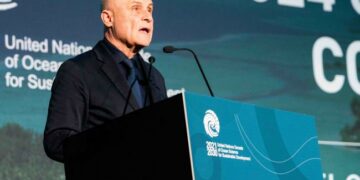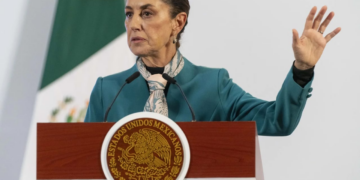Poland’s liberal opposition, on Monday, celebrated exit polls, showing it had won a parliamentary majority in the weekend elections, paving the way for potentially huge change after eight years of nationalist rule.
The surprise exit poll result came after the ruling Law and Justice (PiS) populist party, led by veteran politician Jaroslaw Kaczynski, threw all the state resources into a campaign largely seen as unfair.
The opposition had meanwhile billed Sunday’s parliamentary elections as the “last chance” to save democracy.
The ballot saw a record turnout, beating even the first free elections after the fall of Communism.
Former European Union chief Donald Tusk declared victory, as exit polls showed his Civic Coalition and two other smaller parties could win a majority in parliament.
“Democracy has won,” he declared late on Sunday, saying a “grim” era had ended.
Many voters in the capital, Warsaw, where support for nationalists is traditionally lower, cautiously welcomed the result.
“There is big hope that something will change,” 20-year-old Natalia Szydlik said.
She said an opposition win would be a move in “a better direction”.
The Ipsos exit poll showed Tusk’s Civic Coalition could win 163 seats in the 460-seat parliament. Two smaller parties, Third Way and Left, were set to win 55 and 30 seats respectively.
That would give the three together a majority of 248.
Projections based on preliminary results on Monday supported the exit poll findings.
For eight years, Law and Justice has put Poland on a collision course with the EU — with controversial judicial reforms, a refusal to take in migrants and hardline abortion policies.
PiS increased nationalist rhetoric in its campaign and even entered a row with its war-torn neighbour Ukraine, despite huge Polish solidarity to help Kyiv in the face of the Russian invasion.
Tusk served as Poland’s prime minister between 2007 and 2014 and as European Council president between 2014 and 2019.
He has vowed to restore relations with Brussels if he returns to power and to legalise abortion — a major point of conflict in the Catholic country.
Many Poles queued late into the evening to cast their vote, in what all parties billed as the most important election since the fall of Communism.
“I am very happy and I believe that finally Poland will be closer to Europe,” said Alexandra Metlewicz, a 33-year-old architect.
She said the most important thing in the vote for her were women’s rights. Law and Justice presented a hardline Catholic vision for Polish women.
But there were still many questions as to who would be in power the morning after the vote.
Other Poles who, while backing the opposition, were more cautious.
“I am curious as to what will come next and how people who will take power will act,” said 42-year-old businessman Karol Jedlinski, adding that he was “far from euphoric”.
He struggled to imagine Tusk leading Poland again.
“For me he is more of a figure of the past,” he said.
Much still depends on President Andrzej Duda. Analysts warn that any governing coalition formed by the opposition could face run-ins with the president, who is a PiS ally.
PiS meanwhile appeared defiant and has presented the election as a win, since the party appeared to have garnered the most votes.
Kaczynski said he still had “hope” he could form a government.
“This is not a closed road for the moment,” he said late on Sunday as the exit poll showing an opposition win came in.
The most likely coalition partner for PiS had been Confederation, a far-right party that has called for an end to Poland’s large-scale assistance for Ukraine and has campaigned on a strongly anti-migrant platform.
But Confederation had publicly ruled out such an alliance and some analysts said it was unlikely to happen because of simmering tensions between the two parties.
The election campaign was characterised by personal attacks on Tusk by the ruling party, which has accused him of working in the interests of Germany, Russia and the EU.
PiS also ramped up anti-migrant rhetoric, with Prime Minister Mateusz Morawiecki saying the country should be protected against illegal immigrants “who have no respect for our culture”.
Ukraine and its Western supporters have been watching the Polish election closely.
Poland has been a leading cheerleader for Ukraine in the EU and NATO and has taken in a million Ukrainian refugees, but there is growing fatigue among many Poles.











